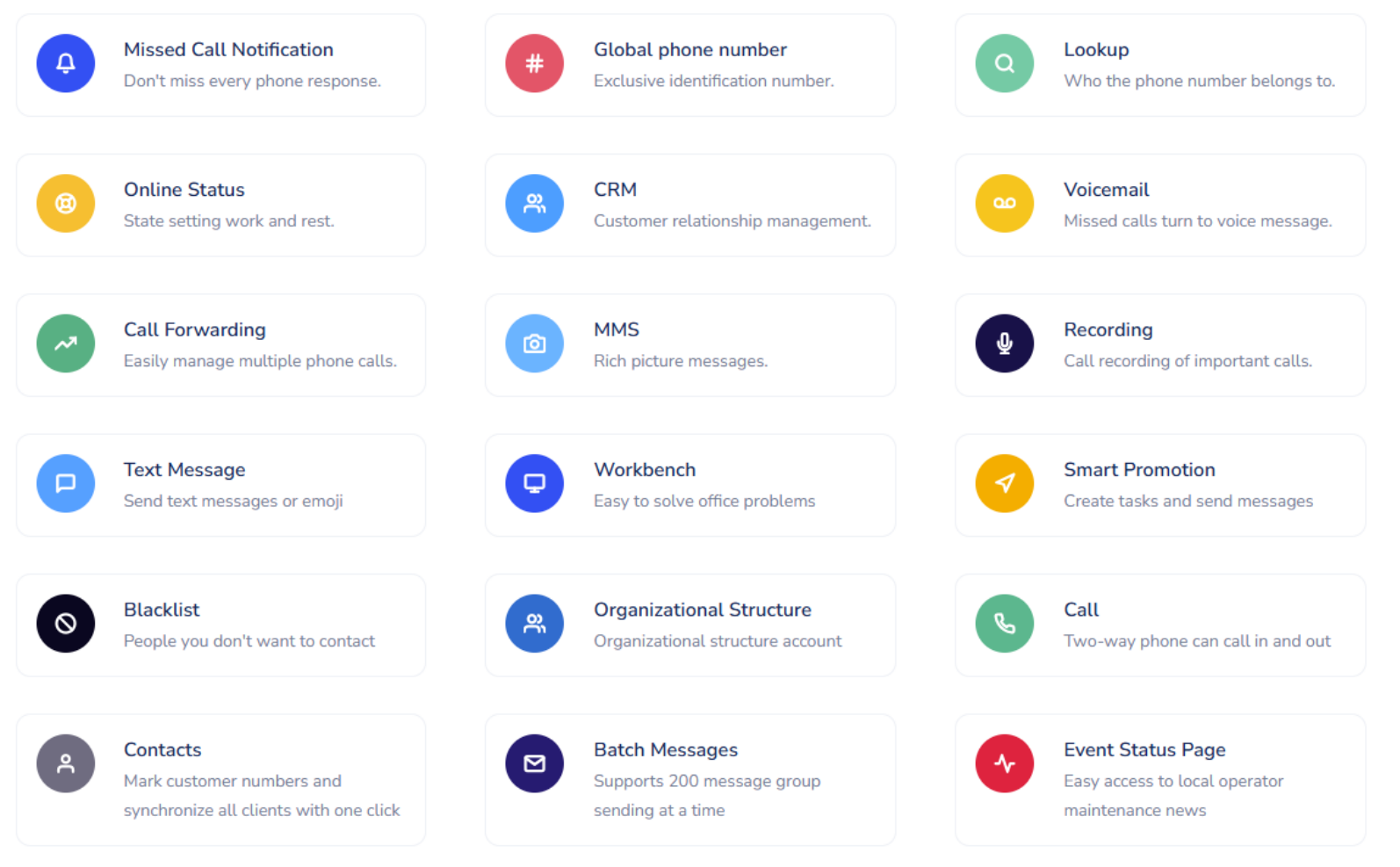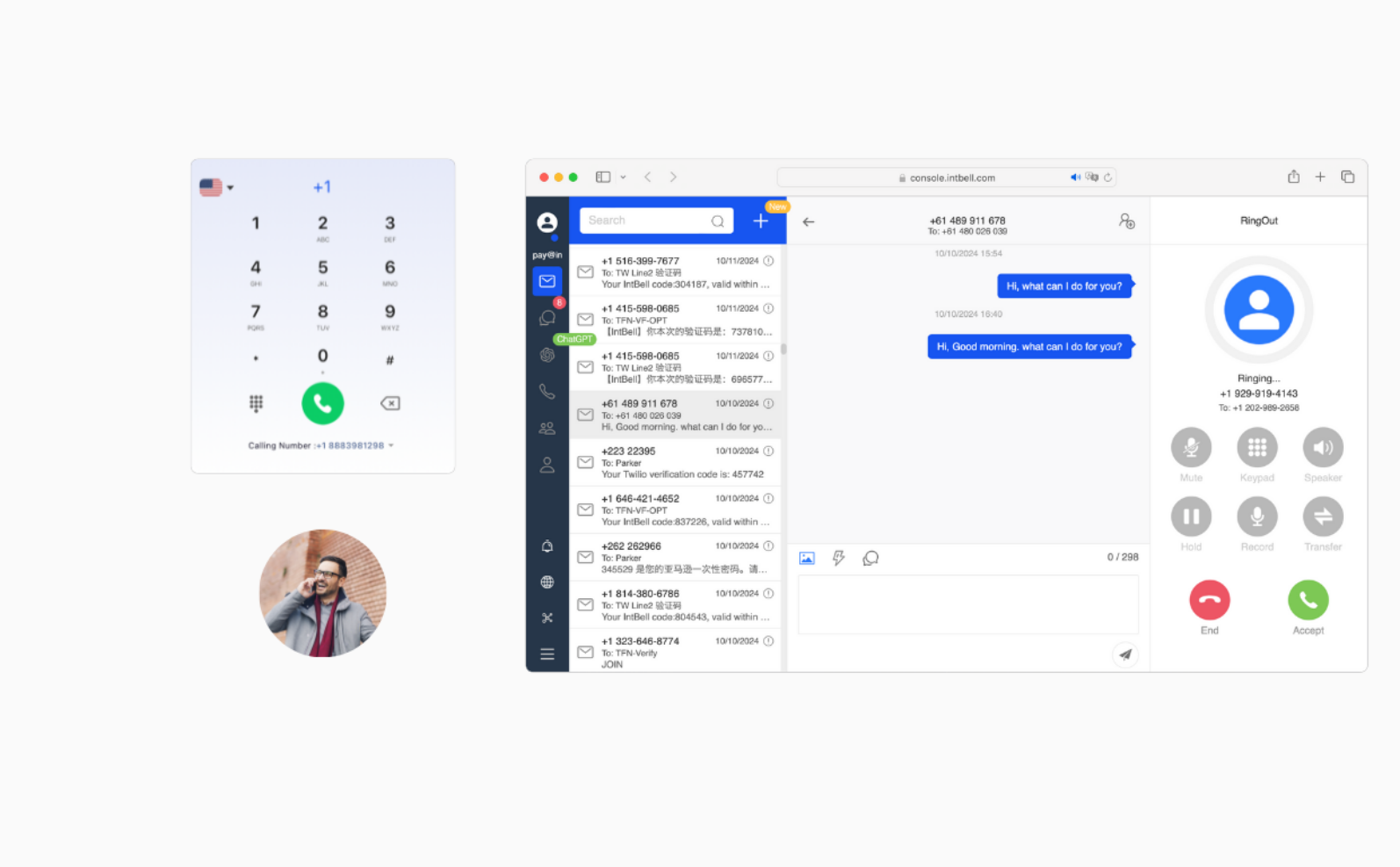In the wave of globalization, an increasing number of small, medium and micro enterprises (SMEs) are exploring overseas markets. However, high communication costs, complex international business docking, and security compliance issues often become key bottlenecks hindering enterprises from “going global”. Traditional international communication solutions (such as international roaming and local SIM card procurement) are not only expensive but also involve complicated operator cooperation processes, discouraging SMEs with limited resources.
IntBell, as a new-generation global cloud communication service provider, has become the ideal communication solution for SMEs going global, thanks to its characteristics of lightweight, low cost, and high flexibility. This article will analyze how IntBell helps SMEs expand into global markets with low costs and high efficiency from five aspects: enterprise pain points, IntBell’s core advantages, functional adaptation, success cases, and usage suggestions.
I. Communication Pain Points for SMEs Going Global
During the internationalization process, SMEs often face the following communication challenges:
High international communication costs
- International calls and text messages from traditional operators are expensive, especially for high-frequency needs such as cross-border customer service and verification code sending, making cost control difficult.
- If enterprises purchase local SIM cards from multiple countries, management becomes complex, and additional roaming fees may be involved.
Difficulty in obtaining number resources
- Some countries (such as the United States and the EU) have strict restrictions on number applications, making it difficult for SMEs to quickly obtain local numbers and affecting customer trust.
High technical docking threshold
- The API integration of traditional operators is complex, requiring enterprises to invest extra development resources, which small and medium teams often lack the technical capability to do.
Unstable communication quality
- Cross-border calls are susceptible to network delays and operator restrictions, leading to issues such as dropped calls and low SMS delivery rates.
These pain points have left many SMEs “wanting to go global but afraid to do so”, and IntBell’s lightweight solution is designed to address these problems.

II. IntBell’s Lightweight Solution: Low Cost, High Flexibility, Easy Integration
The core advantage of IntBell lies in its “lightweight” approach—enterprises can enjoy professional-grade global communication services without huge investments, with main features including:
1. Pay-as-you-go, zero sunk costs
- Traditional operators usually require enterprises to prepay high package fees, while IntBell adopts a “pay for what you use” model, especially suitable for SMEs with fluctuating business volumes.
- For example: A cross-border e-commerce business needs to send a large number of international SMS during peak seasons but has reduced demand during off-seasons. IntBell’s elastic billing can help the enterprise save over 30% in costs.
2. Low-threshold usage, no complex configuration required
- Enterprises can directly manage global numbers, call records, and SMS sending through web pages or apps, without the need for professional operation and maintenance personnel.
- Multi-language support is provided, enabling non-technical operation teams to get started quickly.
III. Functional Adaptation: Virtual Numbers, Two-Way Communication, Global Coverage
IntBell’s functional design fully matches the overseas expansion needs of SMEs:
1. Virtual numbers: Quickly establish a localized image
- Covering virtual numbers in 200+ countries/regions such as the United States, the United Kingdom, and Southeast Asia, enterprises can own local numbers without physical SIM cards, enhancing customer trust.
- Application scenarios: Cross-border e-commerce customer service, international enrollment consulting, overseas brand marketing.
2. Two-way calls & SMS: Seamless global communication
- High-definition two-way calls: Enables enterprises to answer calls from overseas customers, avoiding missed business opportunities.
- Two-way SMS: Can be used for international order confirmation, customer service, identity verification, etc.
- One-way SMS (verification codes/marketing): Covers global operators to ensure high delivery rates.
3. Intelligent routing & data encryption
- Dynamically selects the optimal communication path to ensure stable call quality.
- End-to-end encryption (E2EE) complies with data compliance requirements such as GDPR, avoiding commercial information leakage.

IV. Success Case: A Start-up Expands into 5 Markets in 3 Months with IntBell
Case background:
A smart hardware start-up planned to enter overseas markets but faced the following challenges:
- Needed to provide local customer service numbers in the U.S. and U.K., but the application process was complex;
- International call costs accounted for over 20% of the marketing budget;
- SMS verification codes could not be stably delivered to overseas users.
IntBell’s solution:
- Activated virtual numbers in the U.S., Canada, and the U.K. within 3 days to establish localized customer service hotlines;
- Reduced call costs using intelligent routing, saving 65% compared to traditional solutions.
Achievements:
- Within 3 months, overseas customer inquiries increased by 300%;
- The SMS verification code delivery rate increased from 70% to 98%;
- Communication costs dropped by 60%, helping the enterprise quickly achieve breakeven.
V. Recommendations: How Can SMEs Efficiently Utilize IntBell’s Services?
Prioritize high-frequency demand functions
- For example: Cross-border e-commerce can focus on virtual numbers + two-way SMS, while educational institutions can emphasize international calls.
Pay attention to cost optimization strategies
- Use intelligent routing to select the most economical communication path and regularly analyze call/SMS data to adjust the plan.
Put compliance first
- Ensure compliance with communication regulations in target markets (such as GDPR in the EU and TCPA in the U.S.) to avoid legal risks.

Conclusion: Lightweight Communication Makes Globalization No Longer a Privilege of Large Enterprises
Through its “low-cost, easy-to-integrate, global-coverage” lightweight solution, IntBell enables SMEs to enjoy professional-grade international communication services with extremely low thresholds. Whether for cross-border e-commerce, overseas education, or smart hardware going global, IntBell can provide matching solutions, truly realizing the global vision of “small teams, large markets”.
In the future, with the popularization of 5G and cloud communication technologies, IntBell’s lightweight model will help more SMEs break through international communication barriers, making global business expansion simpler and smarter.



